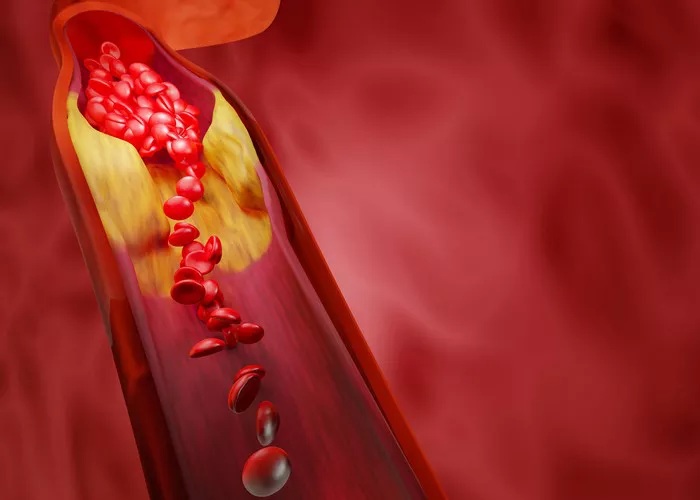Hyperlipidemia, characterized by elevated levels of lipids in the blood, is a significant risk factor for various cardiovascular diseases. The intricate relationship between hyperlipidemia and heart failure is a subject of extensive research and clinical interest. Understanding this connection is crucial for developing effective prevention and treatment strategies for heart failure, a condition that affects millions worldwide.
Understanding Hyperlipidemia
Hyperlipidemia refers to abnormally high levels of lipids or fats in the blood, including cholesterol and triglycerides. The condition is often classified into primary and secondary types. Primary hyperlipidemia is usually genetic, while secondary hyperlipidemia results from lifestyle factors or other diseases.
Types of Lipids Involved
Low-Density Lipoprotein (LDL) Cholesterol: Often termed “bad” cholesterol, LDL is a major contributor to the development of atherosclerosis.
High-Density Lipoprotein (HDL) Cholesterol: Known as “good” cholesterol, HDL helps remove other forms of cholesterol from the bloodstream.
Triglycerides: A type of fat found in the blood that, when elevated, can increase the risk of heart disease.
see also: Mixed Hyperlipidemia Vs High Cholesterol : What Is The Same
Causes of Hyperlipidemia
Genetics: Familial hypercholesterolemia is a genetic disorder that results in high cholesterol levels.
Diet and Lifestyle: High intake of saturated fats, trans fats, and lack of physical activity.
Medical Conditions: Diabetes, obesity, hypothyroidism, and certain kidney diseases can lead to hyperlipidemia.
Mechanisms Linking Hyperlipidemia to Heart Failure
Heart failure occurs when the heart is unable to pump blood efficiently, leading to inadequate blood flow to meet the body’s needs. Several mechanisms explain how hyperlipidemia can contribute to the development and progression of heart failure.
Atherosclerosis
Pathophysiology: Hyperlipidemia promotes the buildup of plaque in the arteries, a condition known as atherosclerosis.
Plaques consist of fats, cholesterol, and other substances that harden and narrow the arteries.
Impact on Heart Function: Narrowed arteries restrict blood flow, reducing the oxygen supply to the heart muscle. This can lead to ischemic heart disease, where the heart muscle is damaged due to lack of oxygen, potentially causing heart failure.
Coronary Artery Disease (CAD)
Development: CAD, a result of atherosclerosis, is a leading cause of heart failure. Hyperlipidemia accelerates the formation of atherosclerotic plaques in the coronary arteries, which supply blood to the heart muscle.
Consequences: Reduced blood flow due to narrowed coronary arteries can cause myocardial infarction (heart attack), damaging the heart muscle and impairing its ability to pump effectively, leading to heart failure.
Hypertension
Connection to Hyperlipidemia: Elevated lipid levels can contribute to the development of hypertension (high blood pressure), another risk factor for heart failure.
Mechanism: Hyperlipidemia-induced endothelial dysfunction leads to increased arterial stiffness and higher blood pressure. Chronic hypertension forces the heart to work harder, which can eventually weaken the heart muscle and lead to heart failure.
Left Ventricular Hypertrophy (LVH)
Definition: LVH is the thickening of the heart’s left ventricle, often a response to increased workload from hypertension or other stressors.
Role of Hyperlipidemia: High lipid levels contribute to endothelial dysfunction and arterial stiffness, promoting hypertension and subsequent LVH. The hypertrophied heart muscle can become stiff and less efficient, increasing the risk of heart failure.
Clinical Evidence And Studies
Numerous studies have investigated the relationship between hyperlipidemia and heart failure, providing compelling evidence of the connection.
Epidemiological Studies
Framingham Heart Study: This landmark study demonstrated that high cholesterol levels are associated with an increased risk of heart failure.
Participants with elevated LDL cholesterol had a significantly higher incidence of heart failure compared to those with lower levels.
MESA Study: The Multi-Ethnic Study of Atherosclerosis found that high triglyceride levels were independently associated with heart failure, even after adjusting for other risk factors.
Clinical Trials
Statin Trials: Statins, medications that lower cholesterol levels, have been shown to reduce the incidence of heart failure.
The JUPITER trial, for example, found that participants treated with rosuvastatin had a lower risk of developing heart failure compared to those on a placebo.
Ezetimibe Trials: The IMPROVE-IT trial demonstrated that adding ezetimibe to statin therapy further reduced the risk of cardiovascular events, including heart failure.
Preventive Strategies And Treatment
Managing hyperlipidemia is crucial for preventing heart failure. Several strategies and treatments are effective in lowering lipid levels and reducing cardiovascular risk.
Lifestyle Modifications
Diet: A heart-healthy diet, such as the Mediterranean diet, rich in fruits, vegetables, whole grains, and healthy fats, can help lower cholesterol levels.
Exercise: Regular physical activity helps raise HDL cholesterol and lower LDL cholesterol and triglycerides.
Weight Management: Achieving and maintaining a healthy weight can improve lipid profiles and reduce the risk of heart failure.
Medications
Statins: These are the most commonly prescribed drugs for lowering LDL cholesterol. They have been shown to reduce the risk of heart failure in numerous studies.
Ezetimibe: This medication can be used in combination with statins to further lower cholesterol levels.
PCSK9 Inhibitors: Newer medications that significantly reduce LDL cholesterol levels and have shown promise in reducing cardiovascular events.
Monitoring And Follow-Up
Regular Screening: Individuals at risk for hyperlipidemia should have their lipid levels checked regularly to monitor and manage any abnormalities.
Comprehensive Care: Managing other risk factors such as hypertension, diabetes, and obesity is essential in reducing the overall risk of heart failure.
Conclusion
Hyperlipidemia and Heart Failure: Hyperlipidemia significantly contributes to the development and progression of heart failure through mechanisms such as atherosclerosis, coronary artery disease, hypertension, and left ventricular hypertrophy. Understanding and addressing these connections is crucial for preventing and managing heart failure.
Importance of Early Intervention: Early detection and management of hyperlipidemia can significantly reduce the risk of heart failure. Lifestyle modifications, medications, and regular monitoring are essential components of an effective prevention strategy.
By comprehensively managing hyperlipidemia, we can mitigate its impact on heart failure and improve cardiovascular health outcomes globally.


